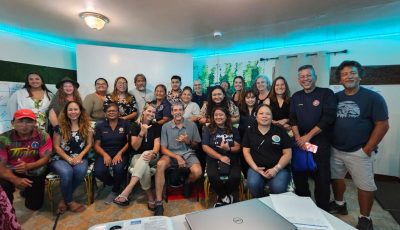CHCC warns public vs leptospirosis
The Commonwealth Health Care Corp. has issued a public health advisory against leptospirosis—a bacterial disease that’s chiefly transmitted via the urine of rats and are usually contracted when wading through floods.
According to CHCC spokesperson Zoe Travis, leptospirosis is caused by bacteria of the genus leptospira, which can be found in dirty water.
With the heavy rains and runoff occurring throughout the CNMI these last few weeks, the advisory from the CHCC Bureau of Environmental Health says that people with a high risk of exposure to the bacteria are those who come into contact with water regularly or as part of their jobs.
This includes, swimmers, farmers, veterinarians, fishery workers, and sanitation workers.
Additional risks of exposure include drinking water from a contaminated source, such as an unclean household or commercial water tank, or doing household chores that require a person to be near water that might be contaminated such as cleaning flooded homes or tents.
Travis said that leptospirosis can cause a wide range of symptoms, some of which may be mistaken for diseases. The common symptoms of leptospirosis include fever, headaches, muscle aches, red eyes, vomiting and diarrhea, abdominal pain, jaundice (yellowing of skin and eyes), skin rashes, or coughs. “If you are experiencing one or more of these symptoms, please see your doctor,” she said.
To prevent leptospirosis:
• Treat water to make it safe to drink by boiling or using an appropriate chemical treatment, especially if it has been collected from a source that could be exposed to urine from animals or contaminated by flood water runoff.
• Use waterproof bandages or other covering that seal out water to cover cuts and abrasions.
• Do not swim, bathe, submerge, or wade your head in, or shallow floodwater or any fresh water source that may contain animal urine or be contaminated with animal urine.
• Keep food, water, and trash in closed containers to prevent rodent infestations. Use any trapping possible to catch any rodents you see, and avoid eating food that rodents may have had access to.
For more information, contact the BEH at (670) 664-4870/72 or email BEH director John Tagabuel at john.tagabuel@dph.gov.mp.



























